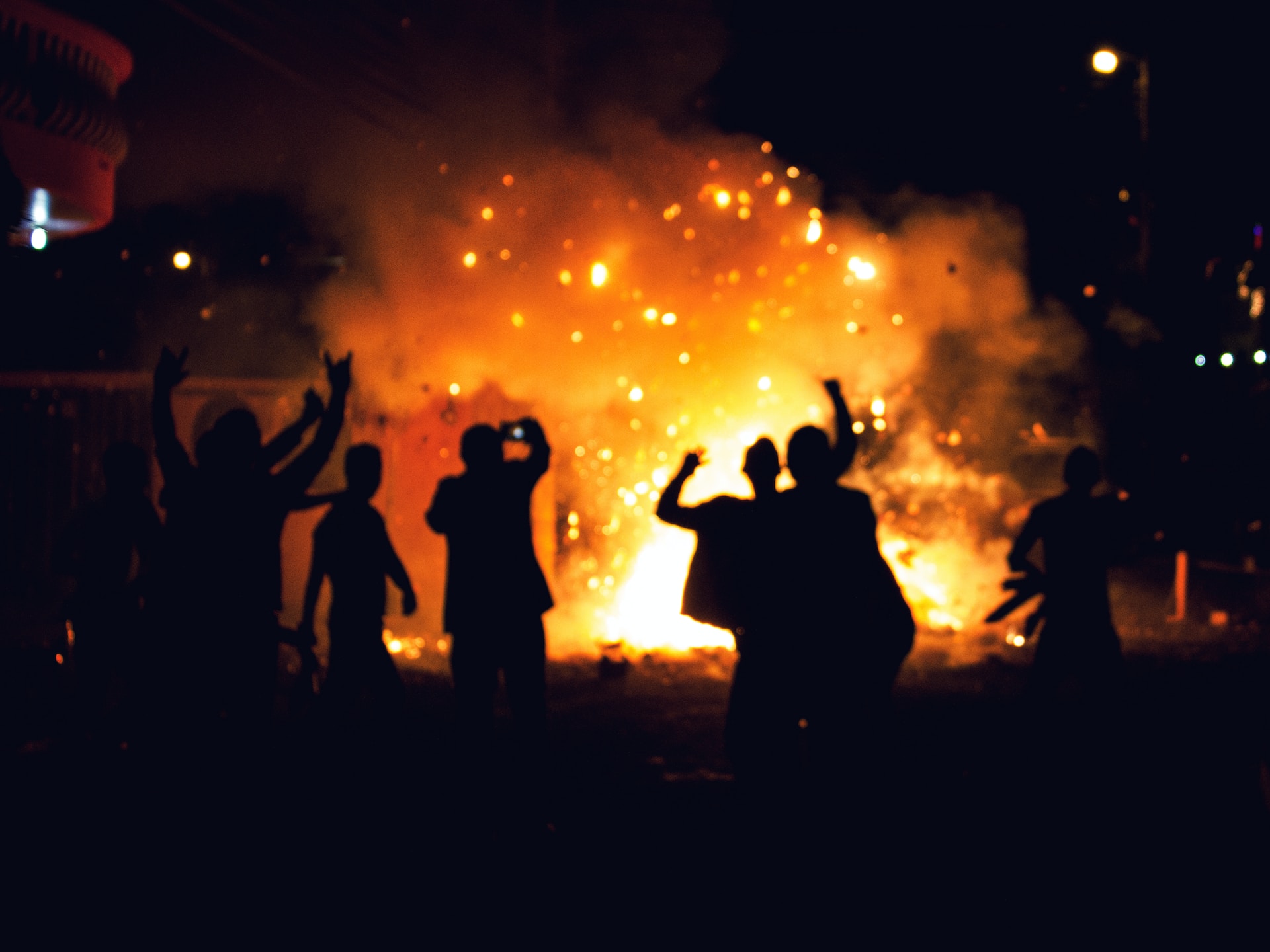What the French press says about the violent protests

Newspaper commentary and analysis in France, Algeria and Iran on violent protests sparked by the killing of 17-year-old Nahel in Nanterre
It is the sixth night of tensions in France since violent protests erupted after a policeman killed 17-year-old Nahel M. for failing to stop at a checkpoint in Nanterre, a western suburb of Paris. However, it is also the first night that there are fewer stops and accidents than in recent days.
Here's what happened and what the French press (and others) write about these events.
WHAT HAPPENED
On the morning of June 27, in one of the banlieues of the French capital, a yellow Mercedes is stopped by two policemen. At the wheel is a 17-year-old boy named Nahel M. who could not be driving the car. The agents stop him and aim a weapon at him, the boy who initially stopped starts again and one of the two policemen shoots, killing the young man.
At the time the policeman had declared that the car was about to run him over but a video circulated online denied this version, showing that there was no real reason to feel threatened. The agent was therefore arrested for voluntary homicide and is in custody.
From the video, also verified by Afp among others, it emerges that one of the two policemen says to Nahel: "I'll put a bullet in your head".
THE EXPLOSION OF ANGER AND VIOLENCE
The episode sparked violent protests across France, where the police were massively deployed and more than 3,000 people were detained. According to the Interior Ministry, the average age of those arrested is 17 and 30% are minors. There were also injuries to both demonstrators and the police and firefighters.
An already dramatic situation was exacerbated by the attack on Vincent Jeanbrun, mayor of L'Haÿ-les-Rose, a municipality on the outskirts of Paris, when in the night between 1 and 2 July a burning car was thrown against his home, injuring his wife and one of his two small children.
In addition to having opened an investigation into attempted murder, French President Emmanuel Macron will meet around 220 mayors tomorrow.
THE FRENCH PRESS ON THE PROTESTS FOR THE NAHEL MURDER
In the French press, Libération , progressive in orientation, wonders how to get out of the violence and believes that the problem lies mainly in the relationship between young people and the police. Also for Mediapart it cannot be overlooked how in certain difficult neighborhoods, such as the banlieue Aubervilliers, young people are left alone with their anger.
"In this city of Seine-Saint-Denis, the only response to the revolt of a part of the youth population was tear gas", it reads. “On the territory, local councilors are abandoned and associations are desperate. After the 2020 election of a mayor of UDI [Union of Democrats and Independents is a French political party with a liberal orientation, ed ], the link between the local administration and popular neighborhoods seems to have broken down”.
The conservative newspaper Le Figaro , which sides absolutely with the police as the last hope for the defense of the Republic. In fact, since Nahel's death, the right, and the extreme right in particular, have been indignant at the billions of euros destined for working-class neighborhoods without producing good results.
The Rassemblement National, Libération writes, “has been humming this tune for years, but it was Eric Zemmour [the far-right xenophobic “polemicist” running in the last presidential elections, as well as a former Le Figaro columnist, ed .] who sang it on Friday on Twitter : 'We spent 40 billion euros to rebuild these neighborhoods with the Borloo plan, 40 billion! Do you see the results today?'”.
“A demagogic discourse”, replies Libération , since “the national urban renewal program (PNRU, 2004-2021), created with the Borloo law of 1 August 2003, did not cost 40 billion, but 12. Two thirds of these they were financed by Action Logement, the government's shareholding”.
THE PRESS OUTSIDE FRANCE
But even outside France, eyes are focused on what is happening. In Algeria, Nahel's country of origin, the newspaper El Watan returns to the theme already mentioned by some French newspapers of the malaise of these young people in revolt, often coming from immigrant families and left to their own devices: "There is an air of nihilism exacerbated in this violence, if not self-destruction, as the rioters attack the common good of which they no longer feel part…”.
And from Iran , the Tehran Times dwells in particular on the old French problems relating to the police force and the racial profiling applied in the poorest and most multi-ethnic neighborhoods.
“In addition to the institutional racism common to many Western police forces – the article states -, the French police have a more frequent tendency to resort to violence against minority groups, which has been repeatedly highlighted by international human rights groups […] In France last year there was a record 13 incidents of killings of ethnic minorities by the police, so this is nothing new”.
And one cannot disagree with this. The failure of integration, ghettoization and persistent discrimination bring to mind many episodes of the past, such as that of the two teenagers of African origin who died by electrocution in 2005 in Clichy-Sous-Bois, a north-eastern suburb of Paris, while fleeing from a police check, which provoked similar riots and even caused the then president Jacques Chirac to declare a state of emergency for three months.
The next few days will therefore be decisive for understanding how Macron will want to intervene before rock bottom is reached because, as L'Odio , the cult film about the Parisian banlieues, said in 1995, "the problem is not the fall, but the landing".
This is a machine translation from Italian language of a post published on Start Magazine at the URL https://www.startmag.it/mondo/cosa-dice-la-stampa-in-francia-delle-proteste-violente/ on Mon, 03 Jul 2023 11:15:09 +0000.
